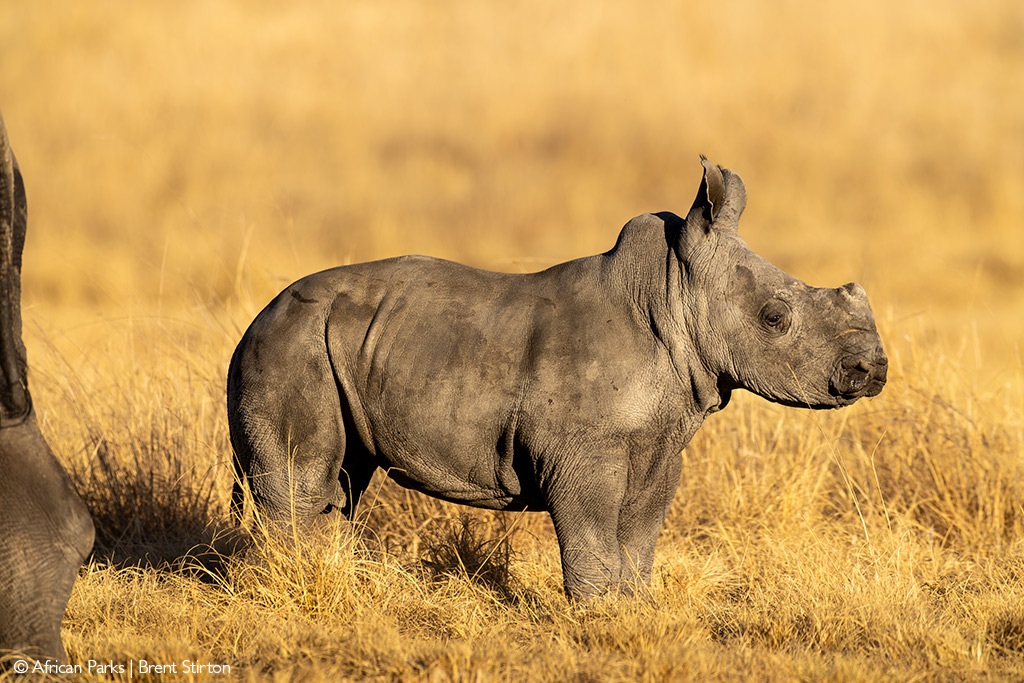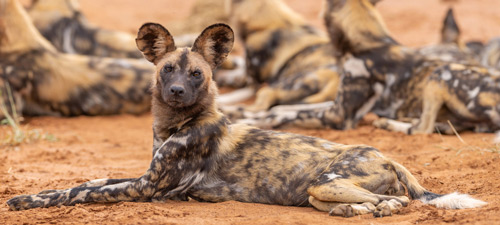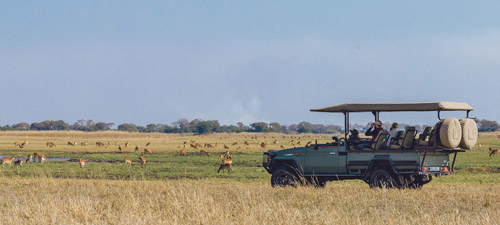
African Parks has donated 40 southern white rhino to Munywana Conservancy in South Africa – the first step of a continent-wide initiative to rewild 2,000 rhinos, purchased from John Hume’s rhino breeding operation
Editorial note about rhino poaching: Information about the presence of rhinos in protected areas comes from within – staff, third-party contractors, pseudo-tourists, relevant government departments, etc. There is no way to prevent poaching syndicates from accessing this information. Successful poaching syndicates find out exactly where in the reserve the target rhino is at any specific time – so that they can get in and out quickly. None of the information in this article is news to the syndicates, and it is also not specific enough for their purposes.
African Parks has officially launched the rewilding phase of ‘Rhino Rewild’, an ambitious plan to rewild 2,000 southern white rhinos into secure protected areas in Africa over the next ten years. In the first move of this continent-wide effort, 40 southern white rhinos were donated to the Munywana Conservancy in KwaZulu-Natal, South Africa, to support the conservancy’s successful conservation and community efforts.
The white rhinos will bolster Munywana Conservancy’s current rhino population. This marks the first translocation under ‘Rhino Rewild,’ an African Parks initiative to rewild 2,000 southern white rhinos, purchased from John Hume’s Platinum Rhino farm, into secure protected areas in Africa.
The Munywana Conservancy has a historical foundation: in 2007, 9,085 hectares of land were returned to its ancestral owners, the Makhasa and Mnqobokazi communities, as part of South Africa’s land restitution process. Both communities requested that the land continue to be kept under conservation. Through this legacy, the Munywana Conservancy, now a 29,866-hectare reserve, is upheld through a collaboration of community and private landowners that include the Makhasa Community Trust, the Mnqobokazi Community Trust, &Beyond Phinda and Zuka Private Game Reserves.

“We are extremely pleased to receive these 40 rhino from African Parks to supplement the current population of white rhinos at our community conservancy,” says Thokozani Mlambo, chairperson of the Makhasa Trust, one of the four primary shareholders of the Munywana Conservancy. “We see this as recognition of the important role that community-owned land plays in conservation, and we are proud to be collaborating in such a significant partnership to rewild rhinos across our continent.”
 DID YOU KNOW that African Parks offers safari camps (lodges and campsites) where 100% of tourism revenue goes to conservation and local communities? Find out more and book your African Parks safari.
DID YOU KNOW that African Parks offers safari camps (lodges and campsites) where 100% of tourism revenue goes to conservation and local communities? Find out more and book your African Parks safari.
The Munywana Conservancy offers a secure environment to support the rewilding of southern white rhino. With this move, Munywana’s current rhino population will be bolstered, enhancing genetic diversity, aiding future rhino translocations to other locations, and supporting tourism – a key driver of the local economy.
In September 2023, African Parks purchased the world’s largest captive rhino breeding operation – John Hume’s Platinum Rhino farm – which was facing financial collapse. The initiative’s main objective is to rewild all the rhinos to well-managed and secure protected areas, thereby establishing or supplementing strategic populations and ultimately helping to de-risk the species’ future.
“I am especially pleased to see that the very first translocation of some of the 2,000 white rhinos are going to this important landscape within South Africa, which is a flagship partnership in which communities are making a significant contribution to the conservation of our natural heritage,” says Barbara Creecy, South Africa’s Minister of Forestry, Fisheries and Environment. “On behalf of the Government of South Africa, we were very supportive of African Parks’ plan to purchase and rewild these rhino and remain a key partner in providing technical and scientific advice, and the support needed to carry out this conservation solution in South Africa and on the African continent.”

To achieve a successful outcome of this translocation, the animals’ body condition and parasite adaptation will be closely monitored as they adjust to their new environment. In addition, the conservancy will implement its intensive security measures to ensure the safety of the 40 dehorned rhino.

“We believe that both African Parks and the Munywana have the same ethos and guiding principles when it comes to conservation, and in that spirit the Munywana has gladly accepted this donation, enabling these rhino to commence the process of becoming fully wild and free roaming,” says Dale Wepener, Munywana warden and conservation manager.
This first translocation was carried out by African Parks, &Beyond Phinda, Conservation Solutions and WeWild Africa, and the financial support for the move was provided by the Aspinall Foundation and the Wildlife Emergency Fund. “We recognise the magnitude and logistical feat of moving 2,000 rhino. This is just the beginning of a long-term partnership with African Parks where we can play our part in making a tangible contribution to the future of the southern white rhino in Africa,” says Damian Aspinall, chairperson of WeWild Africa.

The southern white rhino is under extreme pressure due to poaching and habitat loss, hence the need for well-protected areas to allow them to thrive. While southern white rhinos reached an all-time low of 30 to 40 animals in the 1930s, effective conservation measures increased the population to approximately 20,000 individuals by 2012. However, the dramatic rise in poaching has decreased their numbers to approximately 16,000 today. White rhinos are mega-herbivores that are important in shaping savannahs, which store approximately 30% of the world’s terrestrial carbon. Where rhinos are present, there is an increase in both flora and fauna, and thriving wild rhino populations are indicators of ecosystem renewal.

“The crux of the solution, and the ultimate success for rewilding these 2,000 rhino, lies in the existence of safe, well-protected and effectively managed areas across Africa, of which the Munywana Conservancy is an excellent example,” says Peter Fearnhead, CEO of African Parks, an organisation that manages 22 protected areas in partnership with governments and communities in 12 countries. “Rhino Rewild is one of our most ambitious undertakings to date, where together with a multitude of governmental, conservation and community organisations, and key funders, we have the rare opportunity to help de-risk a species, and in the process to help secure some of the most critical conservation areas not just in Africa, but in the world.”
The Rob Walton Foundation, the Pershing Square Foundation, WeWild Africa, the Aspinall Foundation, and the Wildlife Emergency Fund are among Rhino Rewild’s initial funders.

To comment on this story: Login (or sign up) to our app here - it's a troll-free safe place 🙂.![]()







